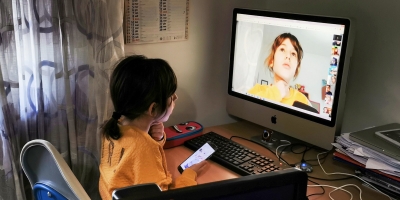
With schools remaining shut due to the pandemic, they were left with no choice but to take classes online. Schools across India ensured students did not have to miss a year or lag behind in terms of syllabus by asking them to attend classes online.
While this was a bold move. It brought to the fore India’s unpreparedness for online learning. Most school teachers are not trained to take classes online. Teaching online is a different ball game compared to a physical class. It requires a different, more interactive and practical approach than the theoretical approaches followed in a physical class.
Meanwhile, children too are not prepared for an online class as their attention span is short. Long hours in front of the screen can drain them out apart from affecting their eyesight. The connection with the teacher is also lost as all the other students are logged in simultaneously.
But the biggest problem faced by schools and students alike is the lack of infrastructure and the digital divide. Many parents don’t even own a smartphone that their children can use for classes. Moreover, many households, especially those in rural India, do not even have internet connectivity. This has led to several students missing out on classes, on their parents having to sell whatever they can to afford a smartphone with an internet connection.
What’s the update?
On September 19, 2020, the Delhi High Court directed private as well as government schools to provide gadgets and an internet package to poor students for online classes. The court noted that not doing so amounts to “discrimination” and creates a “digital apartheid.”
It further stated that separated such students from the class can create a sense of inferiority which may affect their hearts and minds.
Picture Credit : Google

